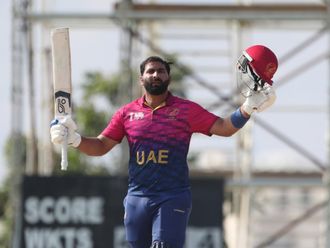England’s early demise from the ICC Cricket World Cup comes as no surprise. There may have been the odd optimistic character, who having seen them beat India in the tri-series, would have believed that this England team would be the one to watch out for.
However, many forgot that India were still nursing a hangover of sorts after the Australia Test series and were also looking to find the right combination for their final XI in the World Cup. They had to deal with the injury to Bhuvneshwar Kumar and were wondering whether he was really fit and if his injury had not fully healed. He looked a pale shadow of his self even in the one World Cup game that he played, and it will be a surprise if he finds a place in the playing XI for this event.
There have been plenty of theories as to why England lost, but not a lot of people have given a thought as to why Bangladesh have played so well in this tournament. A few years back, Bangladesh introduced the Bangladesh Premier League, where like in the Indian Premier League, overseas players were also allowed to be part of the franchise teams. What this did was give the Bangladesh players the chance to interact with these players and see how they prepared for the games, the manner in which they countered pressure situations and handled themselves in those positions.
Spending quality time with players from around the world also gave them loads of self-confidence, and the awe factor that they may have felt about some overseas players went away and they began to believe more in themselves than they had done earlier. The T20 format also brings out the daring in a player and the Bangladesh players learnt quickly that even if the asking rate got a bit high, they could still get to the target with a few good blows in a couple of overs.
The transformation could be seen in the Asia Cup that followed in 2012 where they disposed off India and lost narrowly to Pakistan in the final. Their players were playing freely and looked unafraid of most situations.
As Shakib Al Hasan went to play in the various T20 leagues in the world, he brought back that experience, and the others around him latched on to that. And so Bangladesh even went on to beat New Zealand in all seven matches played between the two ahead of Friday’s meeting. Those wins may have come at home, still, it was the kind of performance that attracted attention and gave the Bangla players even more self confidence.
Sure, they haven’t quite bettered their Test match results as yet, but that also will change soon if they continue to have the self belief that they show in this World Cup. Bangladesh will be India’s opponents in the quarter-finals and India will do well not to take them lightly, for they can spring a surprise.
There have been many voices to promote Ireland and Scotland as Test nations, but clearly the experience with Bangladesh shows that the ICC will do well to wait and see. Just about every Irish player plays for a County in England, and that too as a home player and not an overseas player so it does beg the question how Ireland, or for that matter Scotland, can be treated as a separate country for the ICC events.
The situation is that, if today, England feels that a player from Ireland or Scotland is good enough to play for them, then that player walks into the England team straightaway without any qualifying period like it is with other countries. Equally when his usefulness is done and he wants to return to his native country, he gets to play for Ireland or Scotland immediately. This is something that the rules committee needs to look at. What it also means is that England actually have three votes at the ICC. If a player born in another country and holding that country’s passport wants to play for another country, there is a qualifying period of four years, but England still manage to get the players they want with some silly rule that the player’s parent or grandparent is English and so the qualifying period is waived off.
All this hasn’t helped English cricket at ICC events, and unless they get bolder impact players in their teams, they will continue to be participants in ICC events with maximum expectations but little results.
- Professional Management Group












